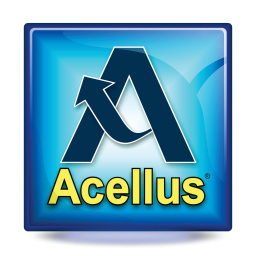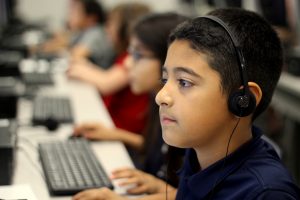It is the practice of the International Academy of Science to maintain access to local, national, and international sources of information and provide an atmosphere that encourages free exchange of ideas to facilitate and promote learning. To that end, students are expected to read and abide by the following policy parameters for appropriate academic conduct.
Policy violations or abuse, or violation of any local, state, or federal telecommunication law or regulation may cause user privilege suspension, school suspension, and/or subject the individual to criminal, civil, and institutional penalties.
Electronic Information Systems
Use of Acellus electronic information system is a privilege. Users must respect the rights of other users, respect the integrity of the systems and related physical resources and comply with all relevant laws, school policies and procedures, and contractual agreements. The Acellus network is defined to include any and all computer and electronic based communication facilities and/or equipment, which are owned, leased, or operated under the supervision of the International Academy of Science.
User and Account Responsibility and Ownership
Acellus users are individually responsible and accountable for the proper use of assigned Acellus accounts. Users should take proper security measures to ensure the integrity of their accounts and should also report any unauthorized access. Users may not allow other individuals to use their Acellus assigned account. Acellus users will be held responsible and accountable for communication content within all coursework, discussions, e-mail communications, etc.
Plagiarism
In an environment of continuous engagement with and exchange of ideas, students must actively read, hear, discuss, and incorporate other’s ideas into their own writing without engaging in plagiarism. Plagiarism is the use of others’ ideas and words without clearly acknowledging the information’s source. Therefore, examples of when students must cite sources include:
- Using another individual’s idea, opinion, or theory
- Presenting any facts, statistics, graphs, drawings, or information not common knowledge
- Providing quotations of another individual’s actual spoken or written words
- Paraphrasing another individual’s spoken or written words.
Music and Video Copyright Law
Acellus treats copyright infringement very seriously. It is illegal to violate the copyright laws, including sharing music and videos, without permission from the copyright owner. Current technology supports the use of software to aggressively search for violations.
Cheating
Acellus students find an atmosphere of dedication and purpose within which honesty is an expectation. Instances of cheating on assignments, tests, examinations, projects, presentations, reports, laboratory reports, etc. will be subject to punitive action. Therefore, examples of cheating include, but may not be limited to:
- Submitting another’s work, such as answers, reports, etc. as one’s own work
- Providing one’s work to another student, with or without compensation, for submission as their own work
- Acquiring questions or answers in advance of, or synchronously with, submitting them
- Engaging in impersonation whereby someone other than the student completes the student’s coursework
Criminal or Illegal Acts
Electronic information systems of Acellus, which include hardware, software, and network environment, shall not be used for illegal or criminal activities. The International Academy of Science will cooperate with all branches and levels of law enforcement in investigations of a criminal nature by making available transmissions and files within the Acellus network. Such activities may involve, but are not limited to:
- Unauthorized access
- Intentional corruption or misuse of resources
- Theft
- Defamation
- Obscenity
- Pornography
- Harassment based upon ethnicity, disability, age, religion, or gender
Internet Etiquette Guidelines
Students initiating electronic communications for the purpose of participating in an Acellus course should observe the following guidelines:
- Identify yourself in each message – A recipient of your message should be able to clearly identify you as the sender. Be sure to include your name at the end of each message.
- Use appropriate language – Your messages should never include profane, explicit, or rude language. Avoid using sarcasm, as it is easy for people to misinterpret your meaning.
- Use proper grammar – Your messages should contain complete sentences with proper punctuation and capitalization. It is recommended that you carefully check for misspelt words or improper grammar before sending your message.
- Respect the privacy of others – All messages should respect the privacy of others. Do not send personal information about someone without first receiving their permission.
- Keep messages concise – Be respectful of other people’s time by keeping your messages concise. Do not carry on about a topic unless you are providing useful information.
- Promptly respond to messages – It is considerate to promptly respond to messages, even if you cannot immediately answer all the questions asked. This assures the sender that you received their message and prevents them from having to contact you multiple times.
Revision: 05292014


